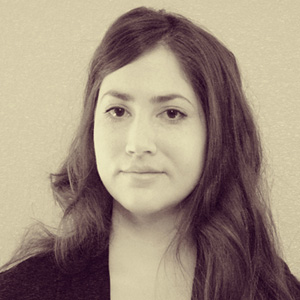
Aya Yadlin-Segal
At USC Shoah Foundation’s international conference this November, Aya Yadlin-Segal will present her research on a topic that is well-known to anyone who reads online news articles: user comments. Her presentation will look at how online comments in Israel are a platform of collective memory of the Holocaust.
Yadlin-Segal is working toward her PhD in communication at Texas A&M University. At the University of Haifa, her master’s thesis was about the representation of Jewish immigrants and immigration in 1950s Israeli children’s magazines.
At the Memory, Media and Technology: Exploring the Trajectories of Schindler’s List conference Nov. 16-18, Yadlin-Segal will present on the Social Engagements with Holocaust Remembrance in New Media panel. Her presentation will focus on user comments on four Israeli news websites that covered the Iranian movie A Separation’s winning of the Academy Award for best foreign language film in 2012. Yadlin-Segal said the writers of the comments used the Holocaust as an “interpretive framework” for the Israeli-Iranian conflict.
“They demonstrate how Holocaust commemoration is not carried only through intentional commemorative activities, but also through mundane practices of interpretation such as writing an online comment,” Yadlin-Segal said. “Thus, user comments are defined as a non-commemorative platform of collective memory, which involves unauthorized voices of the Israeli society (as opposed to official authorized ones) in the task of Holocaust commemoration.”
She said the conference would be an opportunity for her to get feedback on her work from highly-recognized scholars in the fields of collective memory and digital commemoration. She is interested in understanding how online platforms construct community and identity, as well as the relationship between the offline and the online.
“One field that reflects this relationship is the field of digitally mediated memories and commemoration,” she said. “Through the conference I am sure I will be able to gain more knowledge about the practice of digital commemoration and the way offline acts are being translated into online environments.”
Yadlin-Segal added that USC Shoah Foundation’s conference will bring together a unique mixture of points of view and scholarly disciplines that would be difficult to achieve in a conference solely devoted to media, education or sociology.